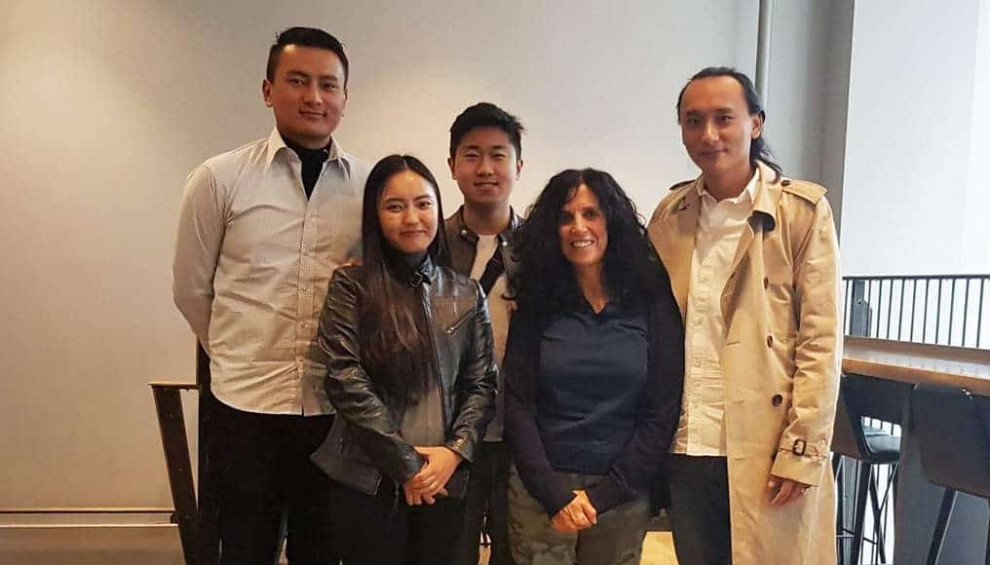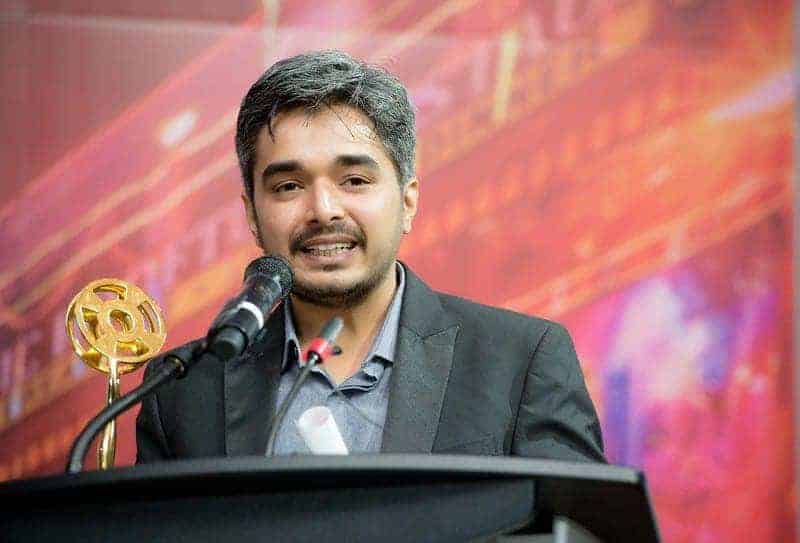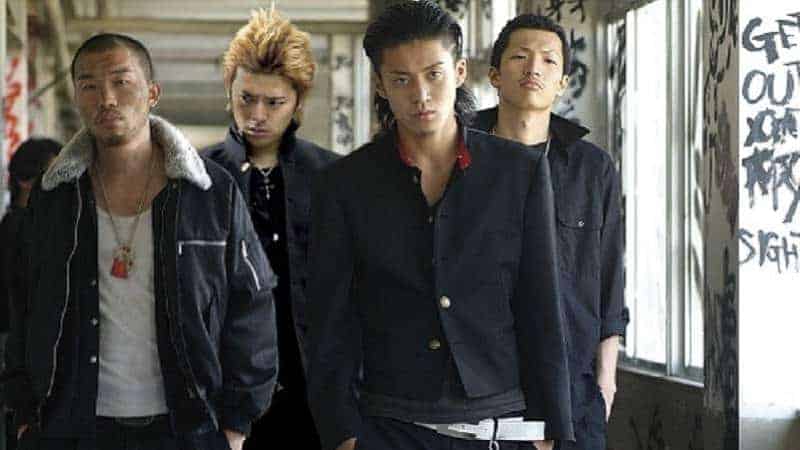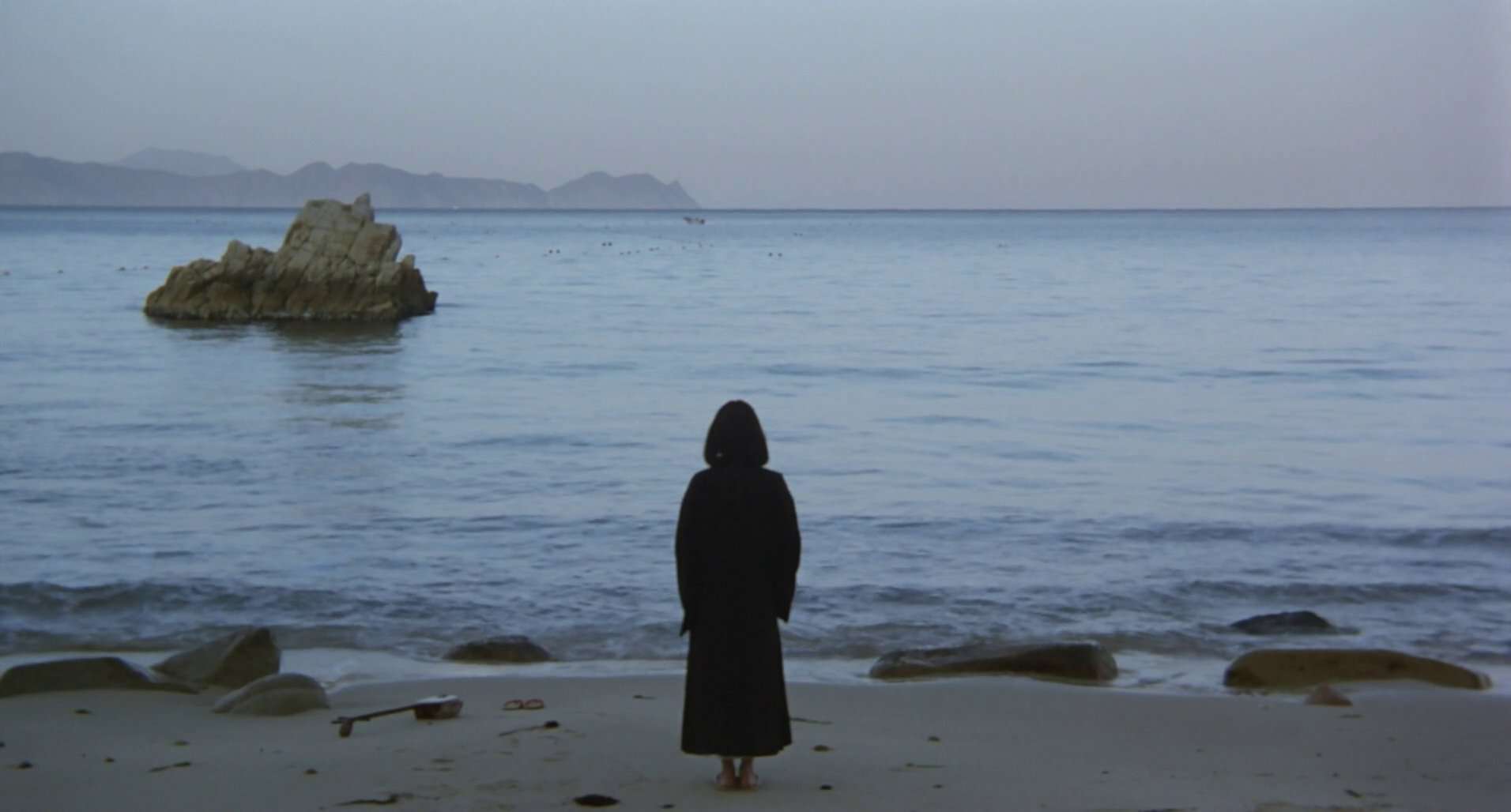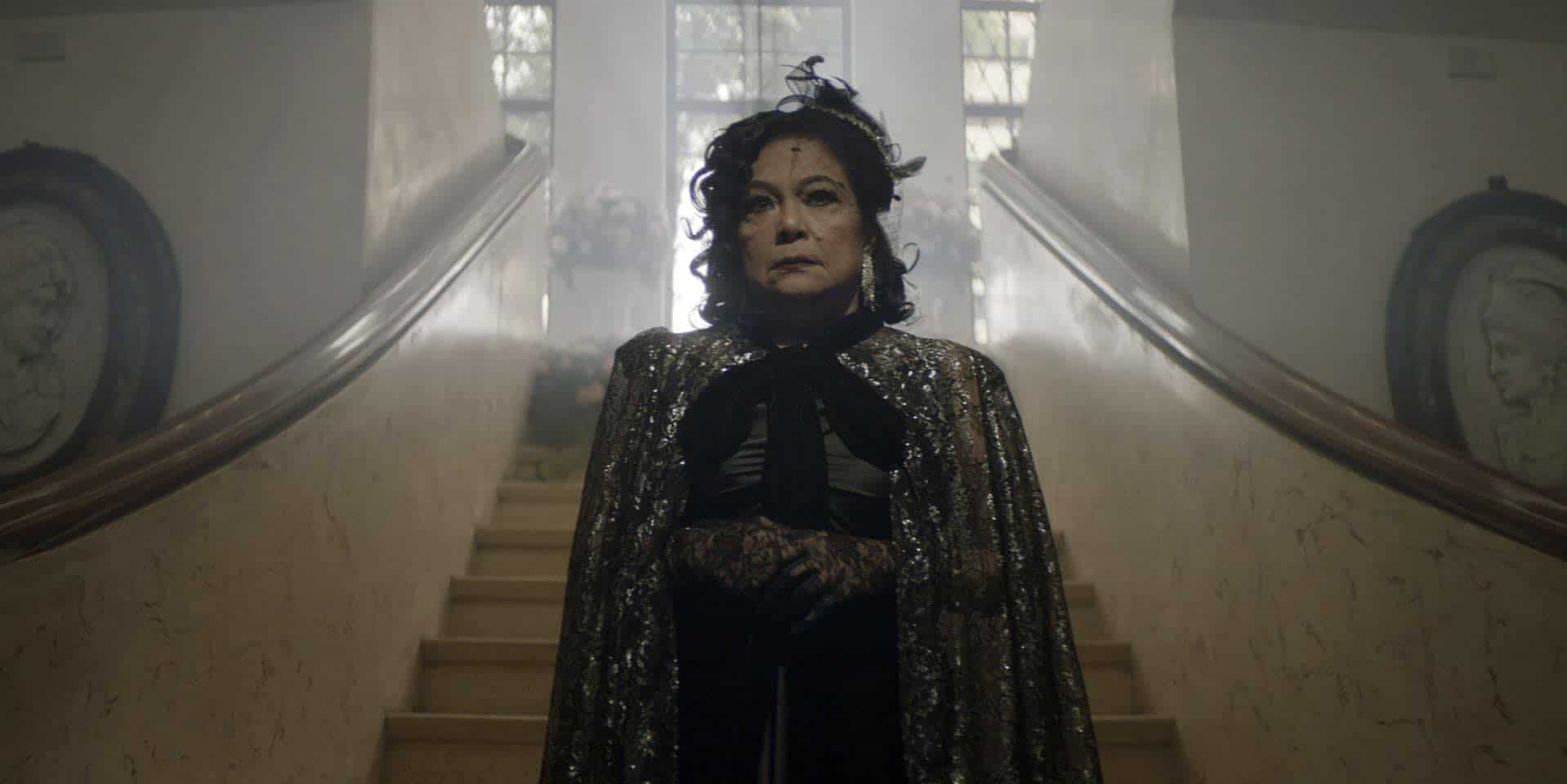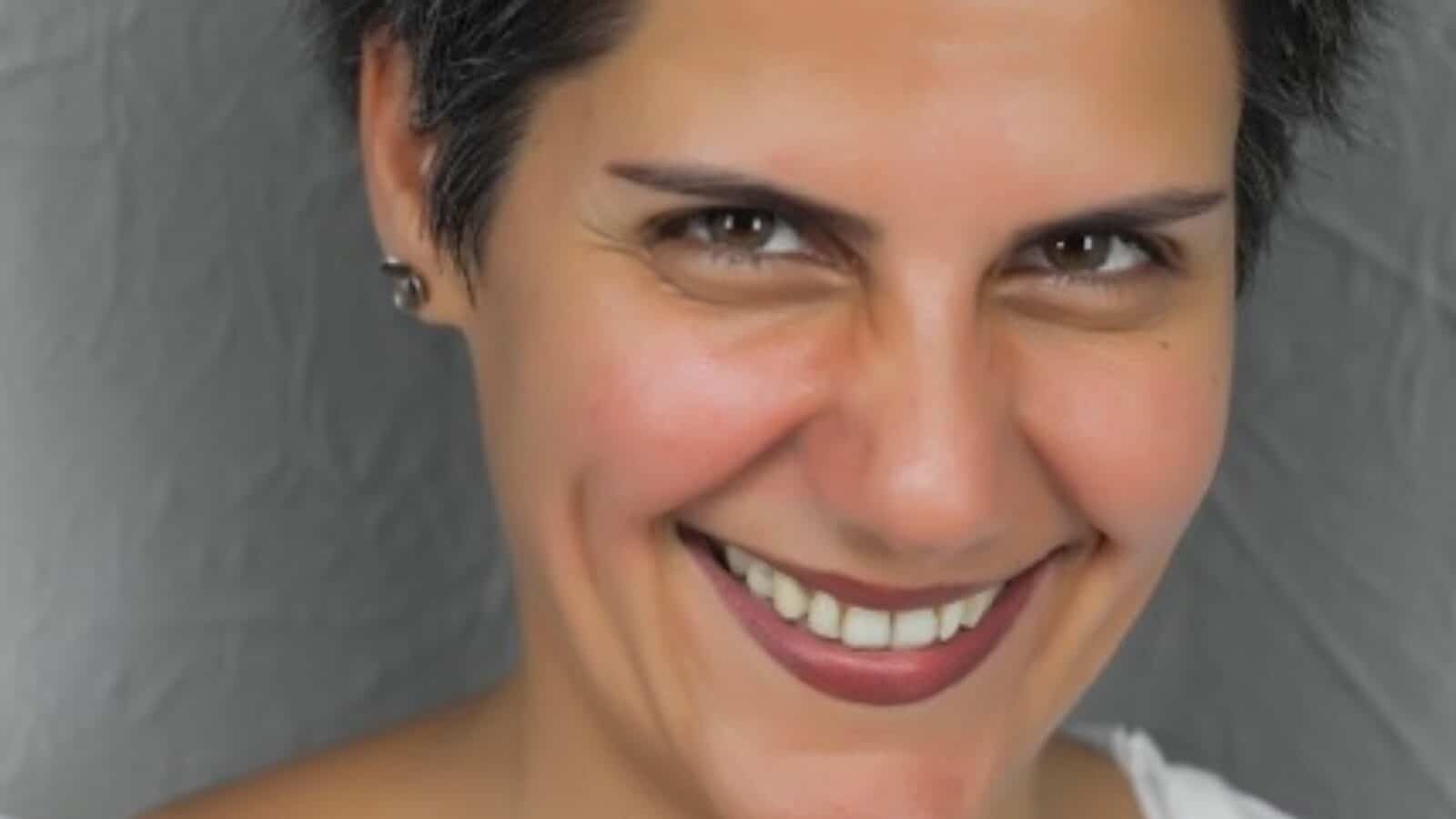Pawo Choyning Dorji is a photographer, filmmaker and the author from Bhutan. His photos have been published in international magazines and newspapers including LIFE, Esquire, VICE and The Wall Street Journal, and his books of photography include “Seeing Sacred: Lights & Shadows Along the Journey” and “Sacred Paths” and “Light of the Moon: The Life & Legacy of Xuanzang of Tang”. He has been working for the Khyentse Labrang since 2006 and is married to Taiwanese actress, Stephanie Lai.
His first brush with cinema was as an assistant director for Khyentse Norbu's “Vara: A Blessing” and then he went on producing Norbu's “Hema Hema: Sing Me a Song While I Wait”. “Lunana: a Yak in the Classroom” is his directorial debut and had its World Premiere in London.
Kelden Lhamo Gurung (as Saldon), Sherab Dorji (as Ugyen) and Ugyen Norbu Lhendup (as Michen) are the first-time actors starring in “Lunana: a Yak in the Classroom”. Kelden is a sudent, Sherab works in a music studio and Ugyen is an engineer.
We met them on the occasion of their film “Lunana: a Yak in the Classroom” having the World Premiere at the BFI London Film Festival and we talked about the “Dark Valley” and its wonderful people, yaks, how the Yak Song was created and its importance, the spiritual guide Khyentse Norbu and the challenges of shooting on top of the World.
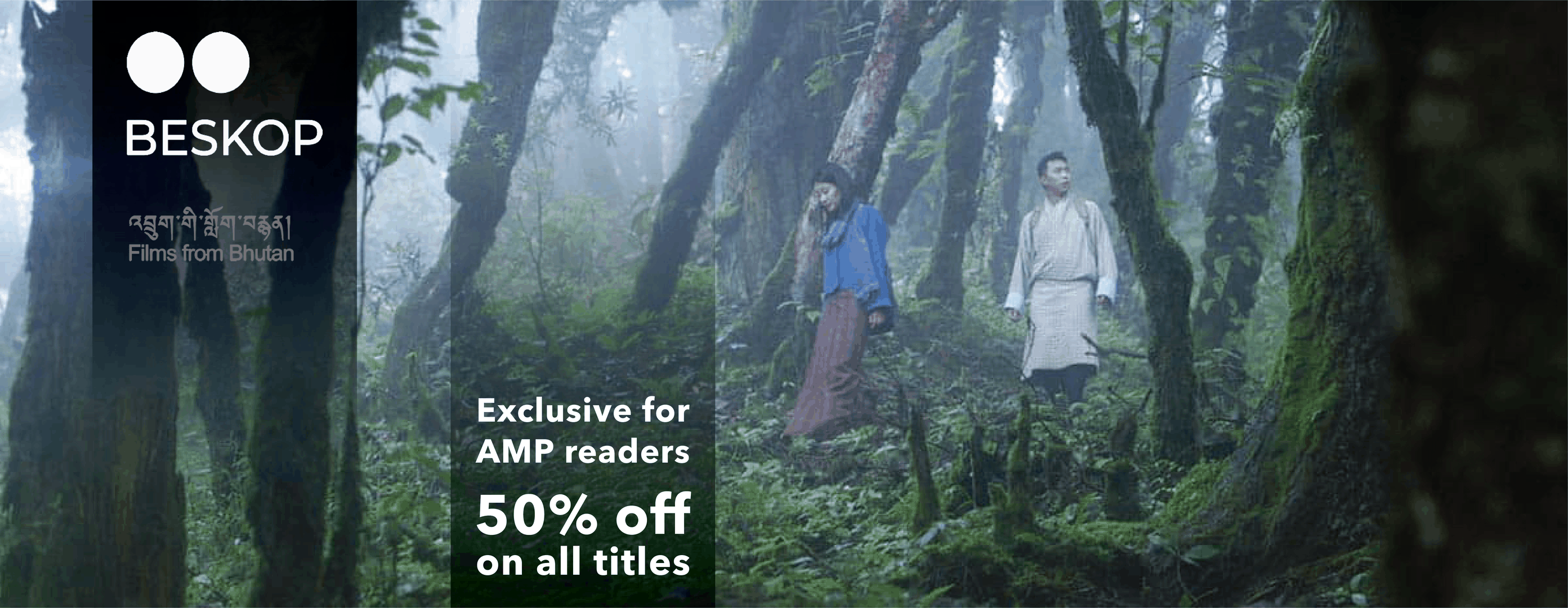
First of all, the story of the movie is very linked to the real village of Lunana. How did you come across it? How did everything start?
Pawo Choyning Dorji: I don't necessarily call myself a filmmaker. I've worked on three feature films. One as a producer, one as a director's assistant and this one, but I rather call myself a storyteller. I write and I am also a photographer. I take lots of photos and I travel a lot. While I was traveling to the deepest corners of Bhutan, I realized that there's so much beauty there, visually but also in terms of stories. And every time I went, I would meet inspiring beautiful people with the most amazing stories to tell. I met a schoolteacher who said that he kept a yak in his classroom because he had to collect yak dung. I met a young girl who lived all by herself on a mountain top because she wanted to be there for her mother. I met a young girl who had the most beautiful confidence, the most amazing smile, and who sang all the time. She was only eight years old and she had no mother and a drunken father. All these lives, you could call them unfortunate lives; for someone living in London or someone like me living in Thimphu (the capital city) seeing these lives, we can say “Oh, poor them”. Yes, they have it hard, but in that hardship there is so much beauty and so much inspiration. They have the sense of contentment, a sense of acceptance of who they are. These are the stories that define the people of Bhutan, the nation of Bhutan. There's so much more to Bhutan than Thimphu; “Lunana: a Yak in the Classroom” is a fictional feature film, but it's almost borderline documentary because they are all true stories that I have brought together different stories that I made it into one and that is how it came together. For example, Pem Zam, the little girl, she is playing herself, right now she's still up there in Lunana, with no mother or fathers, she's brought on by her grandmother, true story.
I picked Lunana to talk about searching for happiness. I traveled around the world and the moment I say I'm from Bhutan, the first thing everybody says is, “you must be very happy”, because Bhutan has become synonymous with happiness. But the interesting is that there are so many young people, like the main character in the movie who are from Bhutan and supposedly happy, but who are always looking to Australia, New York for happiness because their idea of happiness is very modern and very materialistic. So I thought, what if we create a story where the main protagonist does go on a journey, but he goes on the opposite end? Instead of to the modern cities of the West, he goes to what is regarded as the most remote part of the Country, and that is Lunana. In Bhutan Lunana is always regarded as something pathetic, something so far away and remote. Even the name Lunana means “The Dark Valley” because it's so far, so destitute that we believe that it's just darkness.
Earlier I asked you if you are all from Thimphu because I am curious to know how the journey was for you, if you had the same cultural shock of the main character when you arrived there?
Sherab Dorji: One great thing about it is that the way he Pawo directed was very linear. It was from A to Z – well maybe just a few jumps – but he made us feel like we were on the actual journey. So even though it was difficult, and you have to have guts and make it happen, he tried his best to keep the filming as linear as possible so that, when we were in character, our mind-sets also felt what we were trying to portray in the film. We actually felt that as we went through the filming.
Were you the only professionals among the village people?
PCD: No one is professionally known. Everyone was a first-time actor except for Tshering Dorji the other mule man, he was the main actor in “Hema Hema”, the only person who has acting experience. They are acting for the first time, but because they are from the city, they know what a movie is. Pem Zam and the other kids have never been out of the village, they don't know what electricity looks like. That's why in the movies when Ugyen said “car”, they had no idea what a car was because they have never been out. Forget about acting in a movie! They had never even set foot in a cinema! They do not know what it feels like, but I think that is where the magic comes because that purity is there. For example, that scene where the kids brush their teeth, that was the very first time they tasted toothpaste in their life. I didn't want to even rehearse that scene because if you do it, that first-time-experience expression is gone. And almost no makeup was needed; that sunburn, that look, that's how we went. (he laughs)
And how was for the technical side, not having electricity up there?
PCD: Exactly! We took a solar power battery and we had to use that very sparingly. We had to power the main equipment, our camera and then our sound but the rest was secondary. On a film set it's such a big deal to watch the daily footage every evening to see if you got everything, or if you have missed anything, but I saw my first daily one month after we left Lunana! We went through the script and just shot it. That was a big challenge. We did take 2000 litres of petrol just in case our solar batteries didn't work and we had to power our equipment with the generators, but we only ended up using 25 litres of that for really small thing like when in the film the plug lights up in Ugyen's room, we had to put on the generator just to film the plug blinking. I always tell people that even if this film is an absolute bomb and fails in the box office or the festival circuit, we can be proud that we have made a movie that has zero carbon footprint.

How long did you stay in Lunana?
PCD: Two months, because Lunana is very subject to the weather. We had to plan very carefully as in winter we would be totally snowed in and in the late summer there's lots of rain. We went in September and October and we had to be done by October because by the time we left it was already getting too cold and stormy. That's why we shot it in a linear fashion in order to try and capture the change of the weather as well.
The cinematography is very elegant, very refined. I saw you had the same DoP of “Hema Hema”.
PCD: Yes, Jigme Tenzing, he's the only professionally trained cinematographer in Bhutan he went to New York film Academy. I really like still camera, I guess because I'm kind of influenced by Ozu, and for the movie we discussed that because I don't like cameras moving and following, I wanted it on sticks, apart from certain shots like the beginning and the end. One thing that we wanted was the camera, the cinematography to almost reflect Ugyen's life, Ugyen's mind. So in the beginning, if you notice, all the way to when he decides to teach the camera is handheld, so it's very shaky and unsteady, and not wide, just focused on people, reflecting his mind as well. But then once he gets to Lunana and he decides to stay, then the camera goes on the tripod and we have the stability and the clarity coming through. I think that it was a very good decision.
And, silly question, but did the school have a teacher when you were up there? I was wondering because the whole film is about the teacher. Did they have a real one?
PCD: Yes, yes! Basically we went up there and we said: “Please, we want to make a movie about your life. Please let us use your school.” So we took over the school for a period of three weeks to shoot all the classroom scenes and of course the children. The teacher was very helpful. And another inspiring thing is the teacher has been there for five years. He's not like him (pointing Sherab) who went there for one year and then ran off to Australia. He went up for his first year and he loved it so much that he has stayed on for five years. Imagine living up there for five years. But he loves it.
Incredible! But I also like the, the end of the film. I like the fact that he actually goes to Australia because I think that his experience stays with him whatever choice he makes.
PCD: Exactly, many people said that they would have liked to see him return or stay back in Lunana but I feel like the fact that he sings the song when in Australia, it means that in his heart he's already back in Lunana. The change has happened.
And was it really you (Kelden) singing the yak song or was it dubbed?
Kelden Lhamo Gurung: Oh yes, it was live recorded, all the songs are live.
SD: One of the requirements for the roles was singing. We were all chosen from a studio in Bhutan. And the requirement was that we needed to be able to act and sing.
You have an amazing voice
KLG: Thank you (blushing)
And I saw you (Ugyen) too in a music video
Ugyen Norbu Lhendup: He laugh surprised
SD: He is a celebrity!
PCD: In Bhutan, we do have a lot of commercial films. But when I wanted to make this film, I wanted people who could sing because singing that song is such an important element; that song is the spine of the story. I wanted it to be as authentic as possible and I think I was so lucky to be able to find people who could sing, but also who looked the part, I always joke with Kelden that she's been casted specifically for her freckles. She looks like a Highlander.
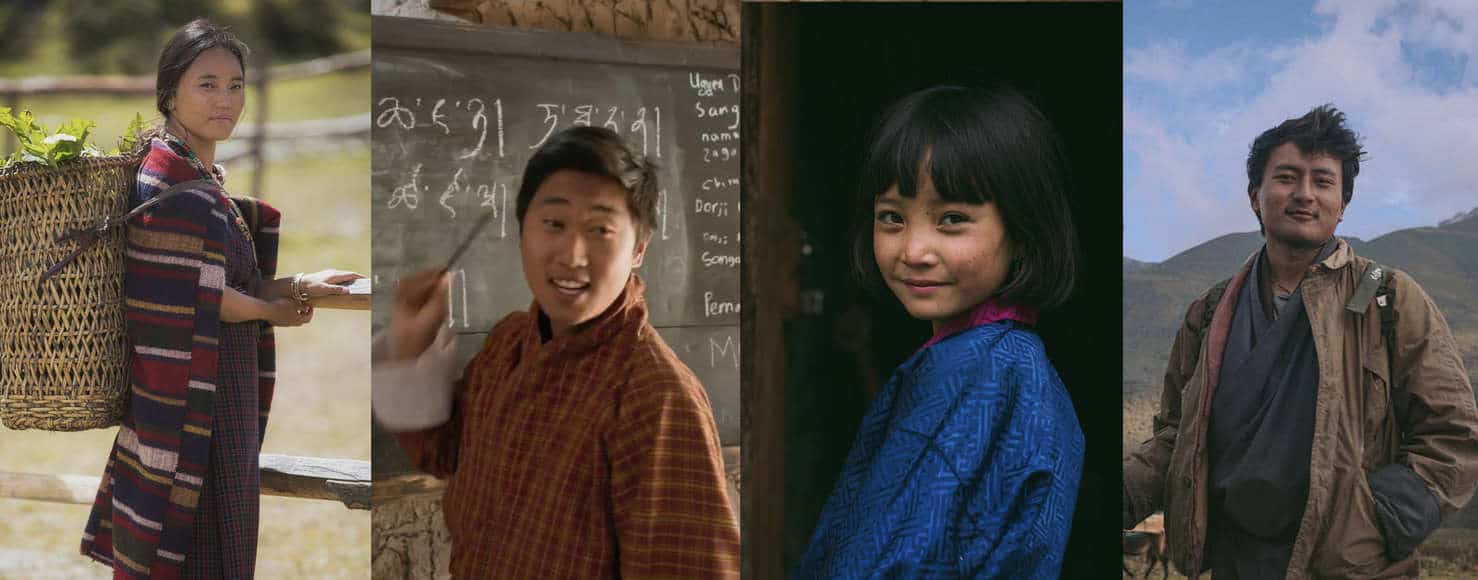
Can you tell me a bit more about that song?
PCD: My intention by making this movie was also to bring back those songs. The Yak Song and the song that the kids sing are regarded as the more traditional songs. And nowadays I feel in Bhutan there are lots of new pop songs, lots of Western songs and I worry that these traditional ones will be forgotten. In the traditional songs like the Yak Song, there is so much meaning behind it, which is so beautiful. So, I took that song that was indeed written by a yak herder for the yaks, but what I wanted to do was to create a fictional story that revolves around it. The song itself is very important for us in Bhutan because it is said that when our third King went to travel in the Highlands, a yak herder came to him and sang him a song as an offering. But the song was all about the King. “You are great, you're so good. You are like the purity of the mountains, the snow, the melted glacial water, the green grass, ect.” And the King said: “Enough now! You are boot-licking me, give me the song.” And the King re-wrote the song and said: “Do not sing about the King, sing about the yak because the yak is the most important to you.” And that is how the first time the Yak Song was born and sadly many Bhutanese not only forget the song – because it's not as entertaining as the modern song – but they also forget the meaning behind it. And I think as filmmakers, as storytellers, we have this very important responsibility to tell the stories of our generation. These are the stories that make Bhutan and who we are.
Can you tell me something about your relation with Khyentse Norbu, the director of “Hema Hema”, who is also way more than a director?
PCD: I have known him my entire life and I feel like he's really my North Star, like in the past sailors and travellers used to look up in the sky and look for the North Star for guidance. Khyentse Norbu is that in my mind, he is my teacher, my spiritual teacher, my worldly teacher; he's like a parent to me. I think a lot of who I am comes from him. He gave me my first chance to work on a film set when he took me as his assistant for “Vara: A Blessing”. When I made Vara with him it was hard and I told him: “I will never ever work on film set ever again.” And then two years down the line I became a producer for his movie (“Hema Hema”) and now I made my own film.
He's the first person I think because, he is my inspiration and many people tell me that in Lunana there are some elements of “Travellers and Magicians“, and I said, yes. That is still a relevant story in Bhutan, in “Travellers and Magicians” people migrated to America, now people are migrating to Australia. But the most amazing thing is – and I only noticed it after I made the film – that when “Travellers and Magicians” ends, the credit song is the Yak Song. How amazing is that? So beautiful, isn't it? And then I didn't do it on purpose, but it's so fitting that when Lunana starts, it starts with the Yak Song. So it's almost like a continuation, a full circle!

I really like “Travellers and Magicians” it is one of my favorite movies, and I also like the fact that you don't really know if at the end Dondup goes to America or not, and it is full of humour as well.
PCD: In “Lunana” there's a lot of Khyentse Norbu because that's just how important he is to me. In cultures where spirituality is really important, like in Bhutan, the spiritual teacher transcends everything. He's just a spiritual teacher, but he is everything in the student's life and he is that to me.
Did you call the yak in the film Norbu thinking about your teacher?
PCD: (laughing) In a way yes, I did think about that because, I think, the teacher can take many different manifestations so he can be a yak. But also because I wanted to point out that the modern man who dreams of going to the Western world goes to this remote place where suddenly the most important item, most valuable item is poop. And because poop is so precious up there, it's almost takes up a jewel like value, and Norbu actually means “jewel”. So the yak is the jewel because it gives us the poop.
And how was for you (the actors)? What was your main difficulty or obstacle that you found?
UNL: It was very inspiring and even though it was first time for us, I don't think it was difficult in any way to work with our director and our co-actors. But, I'll be honest, it was very difficult to work with the village head man. He was also a first time actor, it was really difficult to work with him. Because of him, we had to take like 14, 15 shots every time, because sometimes his dialogues wouldn't work, sometimes his locking positions wouldn't work, sometimes his eye movements would work. We were portraying local persons but in reality we were from the town, but he was really from the village and he really doesn't know a thing about film-making, he's really alien to all of this. So it was quite difficult to work with him, but in the end we got what we needed.
KLG: It wasn't difficult for me because most of my scenes are singing and I had already practiced that. I wouldn't say it was very difficult, but the part where I'm explaining to him about the value of yak, it took me a while to get it right, but other than that, Lunana wasn't hard at all.
SD: Like I said, Pawo really made it easy for us to keep our emotions and we didn't have to get back in character time and again to get back to that emotion that was happening the previous scene because he made it so linear, it was easy for us. The hardest part was actually Lunana, the harsh conditions of Lunana, it was so difficult! A few days in Lunana would be fine, but – Oh my God – I don't know how people stay there for years and years. It's so difficult! I mean, if you go as a tourist you like it because you stay there for a few days, maybe a week at the maximum. You don't really get to experience Lunana. It was so harsh, so difficult. Really, I think it's a miracle that we even got the film done because we had one camera and so many things could have gone wrong. One of our Pelican (a lens and camera case) fell in the river and the person carrying it was seriously injured. Luckily it was not the camera Pelican, just the monitor and some lenses, but everything got saved. So for me, the hardest part was not the acting, not the working with the people. It was Lunana, it's so harsh up there.
And you were there in the good season!
SD: Yes! Luckily we finished before the real onset of winter, but it was already so cold and it was really difficult up there. And you couldn't charge your phone. You couldn't do anything.
What are your plans for the future? Will you not carry on with the acting career?
UNL: Yes, we definitely want to, if we get the opportunity to like this. We definitely want to do that. But for now we'll be back to our lives. Kelden is studying and I'm a civil engineer by profession, I have a job there.
SD: I think I want to pursue this in Bhutan. There are only few directors that are actually good and Pawo is one of them, he set such a high bar! It's such a high bar that we acted in Lunana and then the story was so great. Too great! So now I feel that for us finding a good director and a good movie will be very difficult because we know what good is, what actual good is. And they're very, very few storytellers who are this good. But commercial cinema is very, very thriving.
UNL: Yeah, it is very audience oriented. Our local audience want something like thatvand the commercial filmmakers give them very much what they want.
SD: It must have dancing, romance, a girl, a boy and the girl being picked up by the boy. Everything is like that.
I know that there are lots of commercial movies but I guess that the indie seen is very difficult.
PCD: Commercial film-making was always there. But the indie film, you know, it's very small industry at best we can churn out maybe one, two movies every two years, three years. But as you can see, the talent is there. We just have to create the rain and the sun. I'm sure you know the Dechen Roder.

Yes, I interviewed her and she said that it was very hard for her when she shot “Honeygiver Among the Dogs”, she had to do everything and she almost got ill!
PCD: I'm the producer, the writer and the director. Even now, you know I'm the one person who is in touch with every festival. I have to deal with all the festivals, with ticketing, hotel… But luckily the film has been picked up by Film Boutique and now they are taking over everything. I believe in karma, cause and condition, how everything has a cause and condition for it to become what it is. And there are so many causes and conditions in Lunana the audience are equally part of this, Lunana, the yak, everything and now Film Boutique to picking it up as well. I don't really know much about Film Boutique, but when I saw their line-up I felt very intimidated and I was even saying to my wife: “I don't know if we even belong in this, they have such a prestigious history”, but I think Lunana has that karma and I'm very grateful.
Talking about karma, what do you think you gave back to Lunana with this project? What did the villagers get out of this project?
PCD: Like I said Lunana is very remote and regarded as the darkest place in Bhutan. Bhutan is already considered very remote in the world. So you're talking about one of the most remote as possible. But an example about cause and condition and karma is the rainbow. You have light, you have rain, certain angle and something so beautiful is created, so vivid, so inspiring. But what we must understand is the rainbow is fleeting, it is so impermanent. Just like that is gone. And I feel the entire Lunana experience is exactly like that. So my hope is that as the rainbow lasts, this rainbow that has come out of the darkest Valley will give people some sort of inspiration and some sort of belonging because that is what the movie is about. That was my intention, to create a story that is so culturally, visually, linguistically different from anything else in the world. It's a film that values yak poop, but at the end the story is about finding where you belong. And that is universal. That is what makes us all humans. I hope that people can just watch it and be like: “okay, this is how we should be. We should be content and then maybe we'll find where we belong.”
UNL: But we also gave something back to the school.
PCD: Yes, it's right. To get permission to use the school, I had to offer some incentives, because they said: “Oh, you want to take over our school for three weeks? What about our classes?” So we rebuilt it for them because the school was very pathetic. Every time there was a little bit of windstorm, the entire roof got blown off. The walls were all temporary. So what we did was we took over the school and rebuild it, with a nice roof on it.
SD: There are so many more stories like this that we experienced when we were filming. So many has been cut out and wish we could have showed all of it. But that would have been too much.
PCD: When you talk about directorial debut, people already get nervous. When I say it's one hour, 15 minutes, you know, firs-time directors have to be shorter, don't risk it. So because of that I had to cut down a lot. For instance, this old man, he's based on my grandfather. He always wore black because ever since he's, my grandmother died, he was in a state of constant mourning. And the wooden bowl too. When I was a child, I used to live with my grandfather and every time we would eat dinner with him, we would sit in a big circle around the fire. He had his wooden bowl that was only for the senior and most respected. But he will take up the cover and let me eat from the cover because I wasn't his favorite and I was the youngest. And when you eat food in the wooden bowl, there is this wooden flavour, this wooden fragrance that goes into the food, which makes it so special. And then for me, my childhood is that. We laugh, we cry, we fight. But that is what defines us as a family now. And I put that in in the movie because it counters what he had in his grandmother's house. You know, the TV is on, grandmother's talking, he's not listening, they are fighting while he is eating. And I wanted to come to that with how mealtime was actually in Bhutanese culture that is sitting on the floor all in a circle eating from the wooden bowl. And then his character, at that moment says: “I miss my grandparents”.

SD: Going back to what you said about difficulties, for me it was also the language, Dzongkha is really hard for many peoples. So that was my main concern as well. Pawo had written in English and then translated into Dzongkha and that was very, very difficult. It is the national language, but many of us have difficulty because it's so hard. We don't speak the true form of Dzongkha but a more colloquial form these days. I almost didn't take the part because of Dzongkha, I was so afraid that all my own audience in Bhutan would make fun of me, it was hard for me. But Pawo made things, work, he hired a dialogue coach specifically for me and then during the two months time his wife Stephanie (Lai) pushed us to act. It was a crash course and I was also being coached on my dialogue. It was being made simpler and in that way I think our younger generation will really understand the film. It's not so formal (in the film), It's not too colloquially as well, but it's something that our own people understand. Pawo was very liberal in terms of this things of the terms of the language and lines. He told us: “Just read the lines in English, understand it yourself and just say it how you would” so that way it came up naturally and very simple.
PCD: That was another effort from my side because in Butan you have the commercial films on one end and then you have the indie films on the opposite end of the spectrum. The indie films, like “Hema Hema”, do well internationally, but in Bhutan, the local audience can never appreciate them because the stories are too abstract for the locals. On he other hand, the commercial films … I have a difficult time understanding what they say because it's like a Shakespearean English, and a lot of songs, a lot of dances. I wanted to make something that had the potential to connect with the international audience, but also have it very simple. And the dialogues are simple, that even a child and Bhutan can appreciate it. So I'm hoping that this film will bridge the gap between the commercial and the indie art industry, bring it closer together. And I hope that by doing that it can inspire other filmmakers to be like: “Hey, we can do something like that!” I always tell them, you have to watch Kore-eda movies. There's nothing profound about it. There are no special effects. They're just hearth touching stories. And in Bhutan we can definitely do that.
So now next step is Busan! Are you all going to Busan?
KLG: They are, but not me, I have to go back to College
PCD: From Busan we'll go to China for the Golden Rooster Awards, then Hong Kong Asian Film Festival and Cairo where we're in the International Competition and that is the magic of cinema. Cairo was the first one who wrote back to me and they said: “We love this film and we want you to save The World Premiere for us” And they said that we will give it the most special platform. It was tempting but in that case I would have to give up London, Busan, Vancouver, China and these are very important markets to me. But they still put us in the International competition. I think this is the magic of cinema; a film about a school and yak poop is going to the Arab countries, it will have Arabic subtitles and it's competing for the Golden Pyramid, which is very amazing, I think. Then we are going to Calcutta, and then we come back the Europe, to Cork, Ireland. it's exciting. Then after that, I don't know what Films Boutique has planned, but they are taking over. Everything, distribution, even festivals they will take over. So I hope, we can get to good Festivals in North America. About market, I don't know, I'm hoping maybe the first place would be in Asia, might be Taiwan or China, but in China they're very strict with the films coming in and that's why I accepted the festival in petition for Gordon Rooster; they said that if I go to Golden Rooster, then it's more likely that the government passes us, let's see.
Good luck with China but “Lunana” doesn't look like a story that in China could clash with the censor board!
PCD: Thank you. Keep looking!



